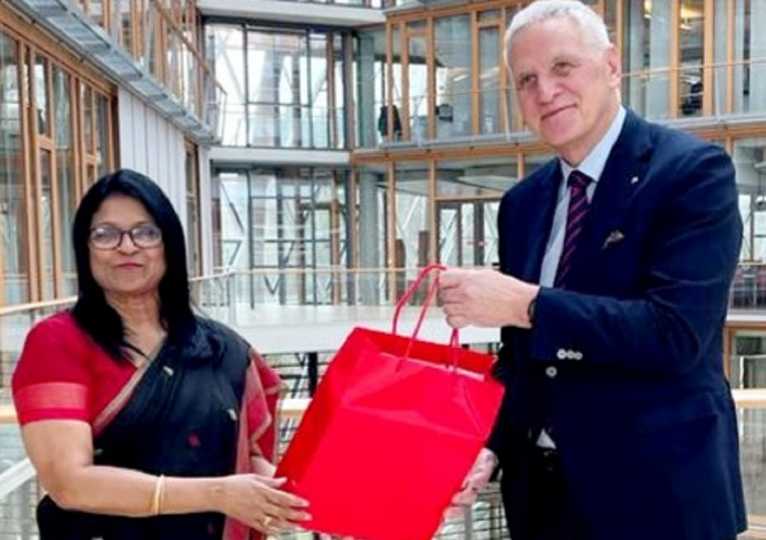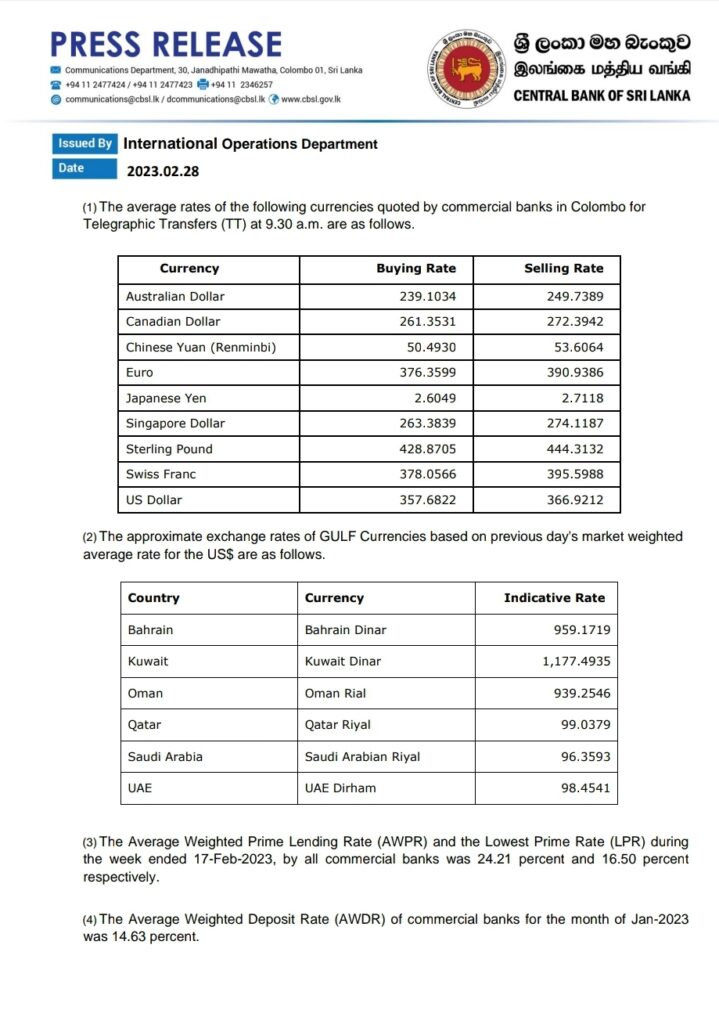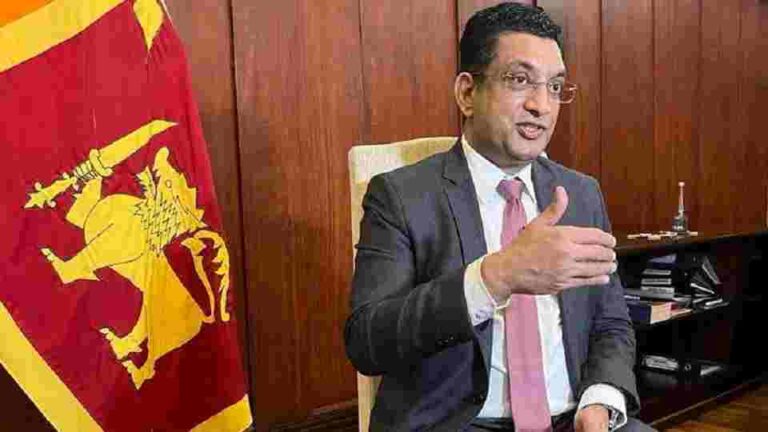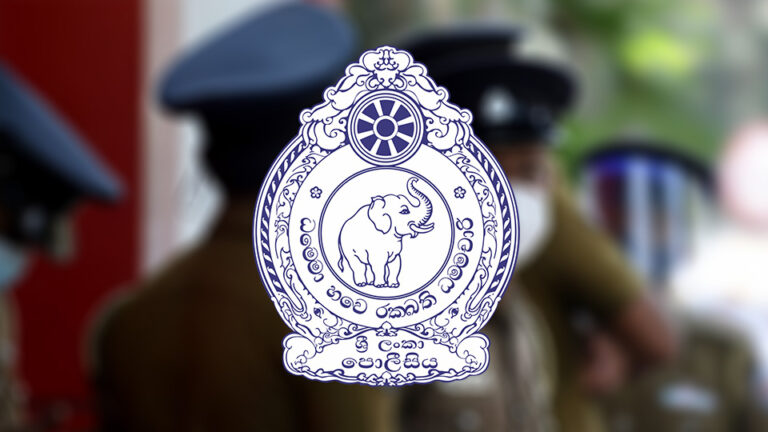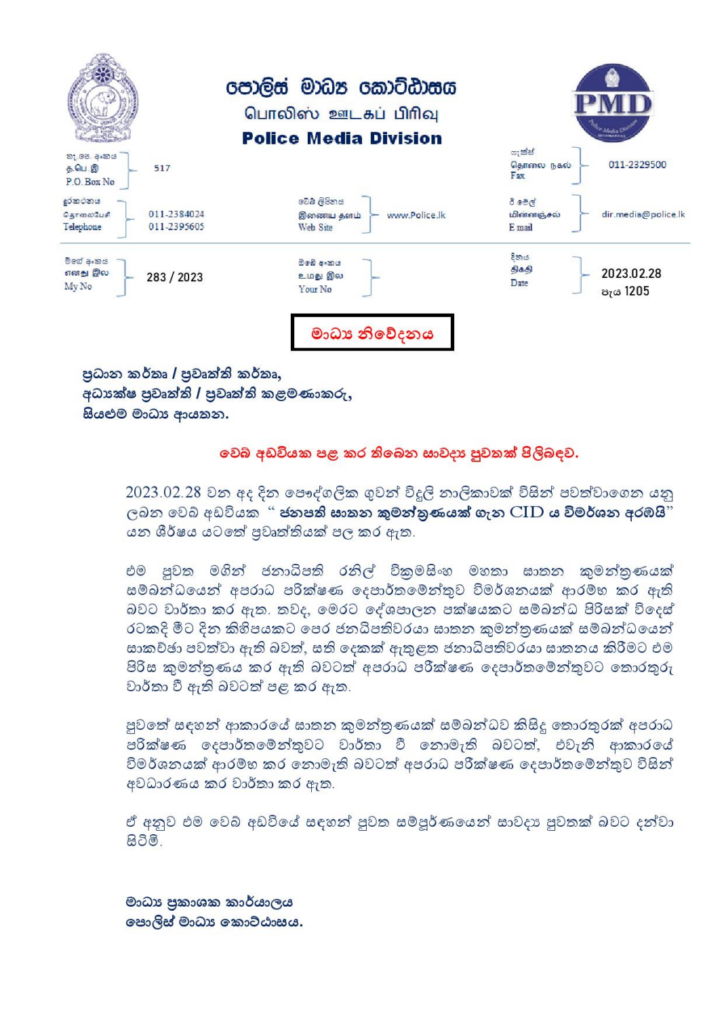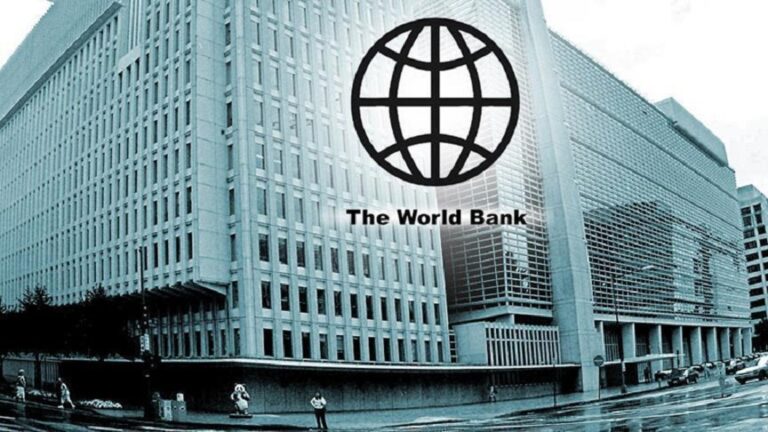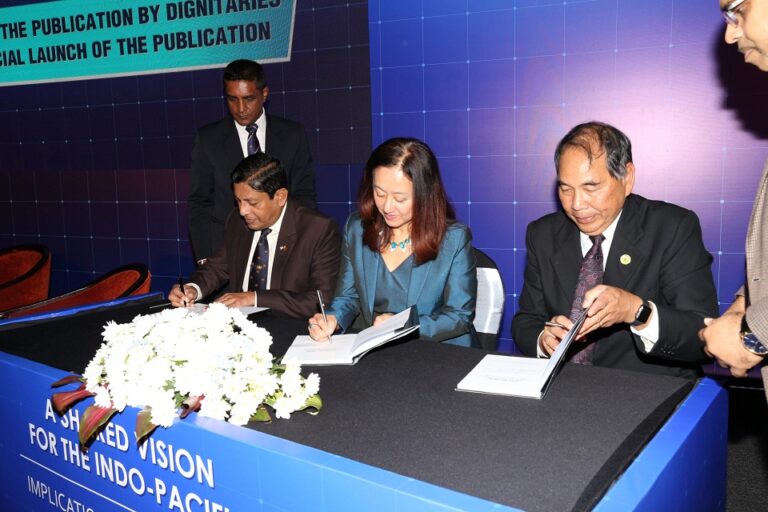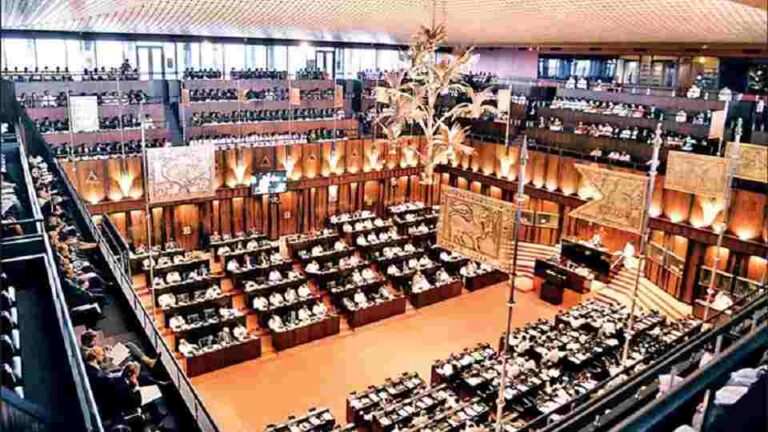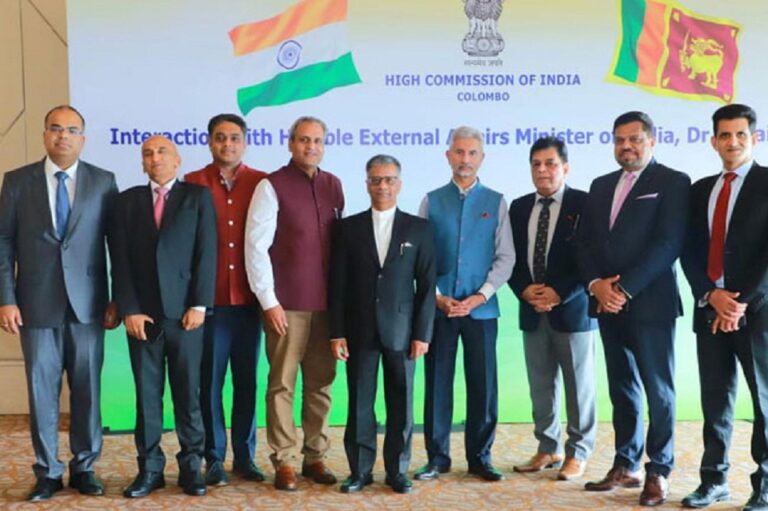Sri Lanka Ambassador to Belgium, Luxembourg, and Head of Mission to the European Union Grace Asirwatham met with Vice President of the European Investment Bank (EIB) Kris Peeters in Luxembourg on 20 February 20. Senior Loan Officer, Public Sector Operations, Asia and Pacific, in the Global Partners Department of the EIB Francesco Consiglio, and Head of the Office of the Vice President Anouk Hamers were also associated with the meeting.
Ambassador Asirwatham briefed the Vice President of the EIB on the current economic situation in Sri Lanka and the actions being taken by the Government of Sri Lanka, including the engagement with the International Monetary Fund (IMF) to ride out the crisis. Ambassador Asirwatham further briefed the Vice President on the vision of the President of Sri Lanka to develop an export-oriented competitive economy, an environmentally friendly green and blue economy, and a digital economy. Vice President Peeters responded by saying that the EIB was closely monitoring the progress of Sri Lanka’s economic revival, particularly the IMF’s offer of an Extended Fund Facility (EFF) for Sri Lanka.
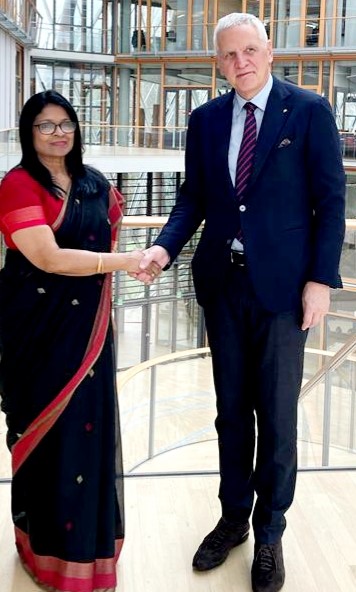
Given that the EIB supports a large number of green projects around the world, the Ambassador presented details of Sri Lanka’s ambitious plans to become a green economy by 2050 and the various measures proposed in that direction in the preliminary report on the Sri Lanka Climate Prosperity Plan, including Sri Lanka’s commitment to supporting the Paris goals of limiting global warming, decreasing carbon emissions by 2030, and making Sri Lanka a low-carbon hub, as well as planning to achieve 70% of renewable energy in electricity production by 2030, among other plans.
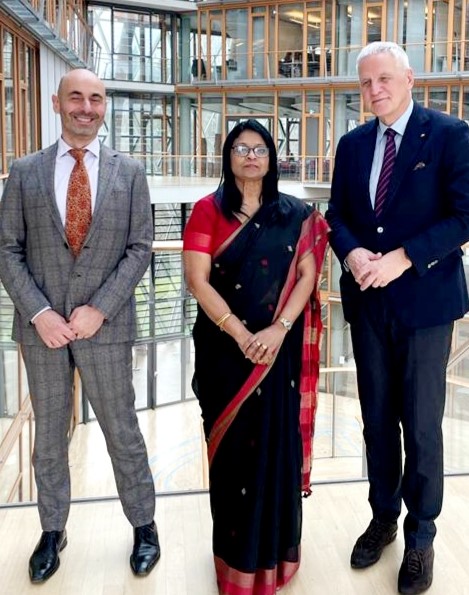
The Vice President said that the EIB will continue its commitment of Euro 50 million to fund the ongoing Greater Colombo wastewater management project in Sri Lanka. He added that once the IMF’s Extended Fund Facility (EFF) for Sri Lanka comes into force, the EIB may be able to consider new financial commitments to support green projects in consultation and collaboration with the European Commission.
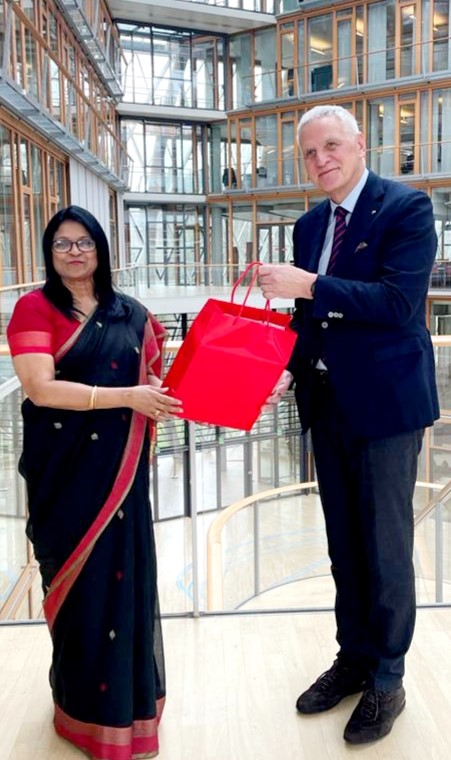
Kris Peeters, who previously served as the Deputy Prime Minister of Belgium, later joined EU politics before being appointed as the Vice President of the EIB.
Embassy of Sri Lanka
Brussels
27 February 2023

